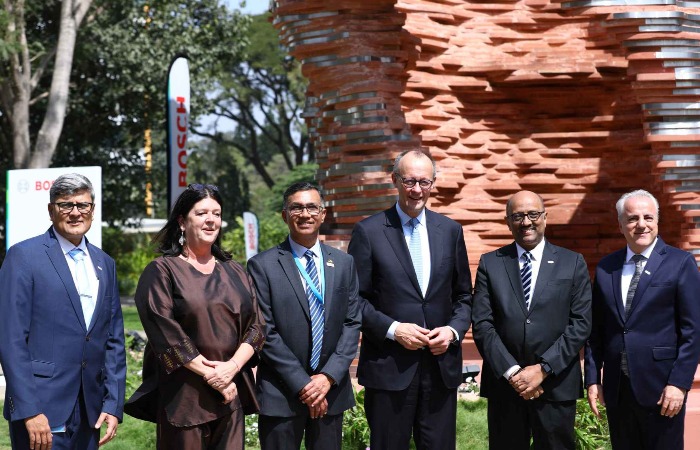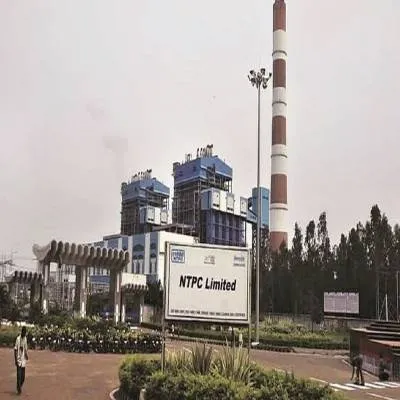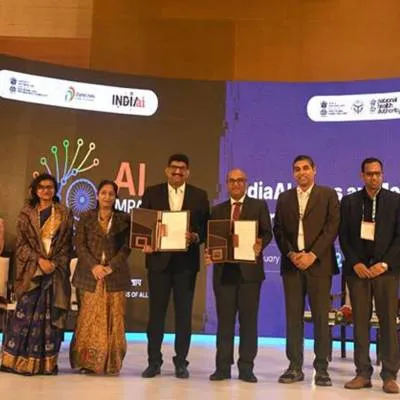Schedule a Call Back
Tata Motors to attain net-zero automotive debt by FY24
2022-06-20
 Tata Motors Group chairman N Chandrasekaran told the media that each of its businesses is self-sustaining, and that gives them the confidence to reach net-zero automotive debt by the financial year (FY) 2024.
The company is dedicated to restoring the profitability of this business as it returns to competitive growth and inflation stabilises, said Chandrasekaran in his address to the shareholders in the FY22 annual report.
Tata Motors Group is now working as three independent business units of Passenger Vehicles, Commercial Vehicles, and Jaguar Land Rover (JLR). This delivers differentiated value propositions to their various customer segments whilst leveraging backend and corporate synergies wherever possible.
The Chairman reiterated that the Group is also vigorously exploring collaborations in battery cell manufacturing in India and Europe to assure our electric vehicle (EV) supply chain.
Chandrasekaran said FY22 was a busy year for the firm as it navigated many challenges to successfully bolster the business's fundamentals.
The global wholesales of Tata Motors grew by 20% to 1,086,734 vehicles, and revenues stood at Rs 278,454 crore, 11.5% higher than FY21.
The year's free cash flow automotive was negative at Rs 9,472 crore corresponding to positive Rs 5,317 crore in FY21.
Chandrasekaran attributed this primarily to negative working capital.
Chandrasekaran told the media that the recent history has been relentless with the global pandemic, growing inequality, supply chain shortages, military conflict, and more, where decades of experience have been squeezed into two years. Companies have had to cope with this unusual sequence of events with speed and agility.
He said that while these transitions have had a severe impact on businesses and communities, they have also accelerated some vital trends for the future.The Energy transition is irreversible and will proceed to green mobility for the rebalancing of supply chains to become resilient and the digital evolution of Artificial Intelligence (AI) and Machine Learning has become mainstream.
On the JLR's performance for FY-22, Chandrasekaran said, the global shortage of semiconductors had a disproportionately negative impact on Jaguar Land Rover's production and sales corresponded to its competitors.
Even though the company took various steps to address the issue, the situation remains challenging. This is a major issue encountering Jaguar Land Rover, and they are working assiduously to address the same during FY23.
Image Source
Tata Motors Group chairman N Chandrasekaran told the media that each of its businesses is self-sustaining, and that gives them the confidence to reach net-zero automotive debt by the financial year (FY) 2024.
The company is dedicated to restoring the profitability of this business as it returns to competitive growth and inflation stabilises, said Chandrasekaran in his address to the shareholders in the FY22 annual report.
Tata Motors Group is now working as three independent business units of Passenger Vehicles, Commercial Vehicles, and Jaguar Land Rover (JLR). This delivers differentiated value propositions to their various customer segments whilst leveraging backend and corporate synergies wherever possible.
The Chairman reiterated that the Group is also vigorously exploring collaborations in battery cell manufacturing in India and Europe to assure our electric vehicle (EV) supply chain.
Chandrasekaran said FY22 was a busy year for the firm as it navigated many challenges to successfully bolster the business's fundamentals.
The global wholesales of Tata Motors grew by 20% to 1,086,734 vehicles, and revenues stood at Rs 278,454 crore, 11.5% higher than FY21.
The year's free cash flow automotive was negative at Rs 9,472 crore corresponding to positive Rs 5,317 crore in FY21.
Chandrasekaran attributed this primarily to negative working capital.
Chandrasekaran told the media that the recent history has been relentless with the global pandemic, growing inequality, supply chain shortages, military conflict, and more, where decades of experience have been squeezed into two years. Companies have had to cope with this unusual sequence of events with speed and agility.
He said that while these transitions have had a severe impact on businesses and communities, they have also accelerated some vital trends for the future.The Energy transition is irreversible and will proceed to green mobility for the rebalancing of supply chains to become resilient and the digital evolution of Artificial Intelligence (AI) and Machine Learning has become mainstream.
On the JLR's performance for FY-22, Chandrasekaran said, the global shortage of semiconductors had a disproportionately negative impact on Jaguar Land Rover's production and sales corresponded to its competitors.
Even though the company took various steps to address the issue, the situation remains challenging. This is a major issue encountering Jaguar Land Rover, and they are working assiduously to address the same during FY23.
Image SourceAlso read: Tata Motors to strengthen its R&D capabilities with fresh hiring


Subscribe Now
Subscribe to our Newsletter & Stay updated
RECENT POSTS
Popular Tags
Folliow us
Related Stories
IndiaAI, UPDESCO Sign MoU to Boost AI Ecosystem in Uttar Pradesh
In a major step towards strengthening the artificial intelligence ecosystem in Uttar Pradesh, the Digital India Corporation’s Independent Busin...










